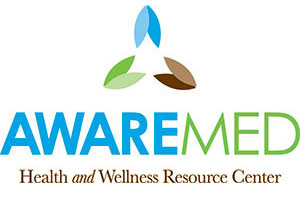Platelet-Rich Plasma (PRP) Therapy for Urinary Incontinence in Johnson City, TN

What is Urinary Incontinence?
Urinary incontinence is a condition that affects nearly 25 million Americans, over half of which are women. This condition causes involuntary leakage of urine from the bladder. Individuals who suffer from urinary incontinence often feel a sudden and urgent need to urinate or have trouble controlling their bladders when pressure is put on the abdomen — especially during sneezing, laughing or coughing episodes.
Urinary incontinence typically affects older women, but it is not a normal sign of aging and should not be ignored. There are different forms of urinary incontinence, and the most common include:
- Urge incontinence: Also known as overactive bladder, this dysfunction is caused by contractions in the detrusor urinae muscle — the muscle that allows the bladder to fill. When these contractions occur, the bladder leaks large amounts of urine, often without sufficient warning to get to the bathroom.
- Stress incontinence: Increased abdominal pressure caused by other bodily reactions or activities can result in leakage of urine in small doses.
- Mixed incontinence: Patients experience symptoms of both urge incontinence and stress incontinence.
- Overflow incontinence: Having a full bladder can cause unexpected leakage of small amounts of urine.
Risk Factors
Women experience urinary incontinence twice as often as men due to factors such as pregnancy and childbirth, menopause and the structure of the female urinary tract. Symptoms of urinary incontinence can get progressively worse over time. Patients who exhibit signs and symptoms should seek medical attention. Urinary incontinence can be a persistent condition caused by underlying physical problems or changes, including:
- Pregnancy : Hormonal changes and the increased weight of the uterus often lead to stress incontinence.
- Childbirth: Vaginal delivery can weaken muscles needed for bladder control and also damage bladder nerves and supportive tissue.
- Age: Aging of the bladder muscles can decrease the bladder's capacity to store urine.
- Menopause : Women produce less estrogen post-menopause, and estrogen is a hormone that helps keep the lining of the bladder and the urethra healthy. Deterioration of these tissues can cause incontinence.
- Hysterectomy: Any surgery that involves a woman's reproductive system, including removal of the uterus, may damage the supporting pelvic floor muscles, which can cause incontinence.
What is PRP Therapy?
Platelet-rich plasma (PRP) therapy has helped to reverse symptoms of urinary incontinence for thousands of patients. It is believed to be a safe and natural treatment method that doesn't require surgery or ongoing medical treatment. PRP therapy is an outpatient procedure that takes less than half an hour.
The physician will begin the procedure by drawing a small amount of blood. This blood will be used to develop platelet-rich plasma, which serves as a natural serum to stimulate tissue regrowth. During this process, the liquid component of blood—also known as plasma—is separated to create purified and concentrated platelets. The physician then injects the platelet-rich serum into the space around the urethra—the tube from which the urine flows out of the body. Once activated, the platelets release growth and regeneration factors that cause a rapid increase in stem cells that repair and rejuvenate tissues. The PRP rejuvenates the nerves, muscles and clitoral/urethral/bladder/vaginal interface. Results are typically seen immediately and progress over subsequent weeks.
PRP therapy is commonly believed to be a safe, relatively painless autologous injection—meaning the plasma is obtained from the individual receiving treatment—that stimulates the production of tissue. Because the PRP comes from the patient's own body, there has never been a report of PRP injections causing allergic reactions.
Request more information about platelet-rich plasma therapy today. Call (843) 213-1480 or contact Dr. Dalal Akoury online.
AWAREmed Health and Wellness Resource Center
Address
1604 Lamons LaneSuite 202
Johnson City, TN 37604
(843) 213-1480
www.awaremed.com
Hours
Mon:
9:00 am - 5:00 pm
Tue:
9:00 am - 5:00 pm
Wed:
9:00 am - 5:00 pm
Thu:
9:00 am - 5:00 pm
Fri:
9:00 am - 5:00 pm


